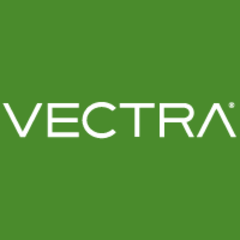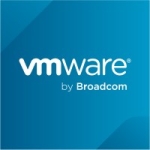What is our primary use case?
The key challenges are employee weakness, getting alerted as soon as possible on our network and infrastructures to anything suspicious that is happening, and policy-type enforcement.
The challenge that it tends to solve is visibility. We put a lot of controls in place for what we suspect will be a risk. However, something like Vectra gives us more visibility and confidence that we have a better understanding of what is actually happening, rather than just the things that we have already planned for.
How has it helped my organization?
We adopted an Office 365 add-in with the product that looks over the Office 365 suite and data traversing that platform. In the future, we see this as a valuable asset that we already have in place to be able to better monitor that type of detection of information. We don't have an environment where there are many true positives, which is good. That has been consistent across the old and new. Our detections have usually been benign or more configuration-based rather than some sort of attack. Because it provides more context and raises things in a way that make it more actionable, it does help you understand the anomaly on a deeper level because it is not just a log that is being forwarded on and has context around it. Vectra AI does do a good job of providing the model information upfront about how its detections work, which is helpful.
We have an external SOC and most of the data or detections from Vectra now flows to them. The final design is that they are the recipient of those alerts in parallel with us. We also receive them directly at times, depending on the criticality. What it does for us is it improves the information and context that they are getting upfront, which means less questions for our internal IT team about what these assets are and what they are doing. Because the analysts at the SOC have more information to work from, it has reduced wasted time and improved the path that we are taking to a resolution, if there is a problem. It is more straightforward when you are getting quality information upfront about what you are actually investigating and why you are investigating it, rather than just, "This particular activity was detected on the network. Go and work out everything about it," Vectra gives you some context around it and a little bit of direction when you see these things, e.g., this is potentially what could be causing it. This improves workflow, reduces wasted time, and makes everyone's life a little bit easier.
It has given us an increased level of confidence in our information security that we have a tool like Vectra to back up some of the incidents that could take place, knowing we are going to get them detected as quickly as possible and identified to us. Nowadays, with threats on ransomware and information security types of techs, we believe that Vectra does give us a greater level of confidence that we will be able to detect those more quickly. If they do occur, we can shut them down more quickly, preventing further risks or damage to our systems or infrastructure.
Vectra AI provides visibility into behaviors across the full lifecycle of an attack in our network, beyond just the Internet gateway. It spells that out quite clearly in each detection. It is not just in the detection. You can look at detections individually, which are essentially individual events. Also, when you are looking at an asset that has multiple detections attached to it, you can see where those sit in the lifecycle of an attack. This gives you an idea of how far Vectra thinks that it has progressed. Having the ability to know where you are in an attack helps you prioritize things a bit better.
The solution correlates behaviors in our enterprise network and data centers with behaviors that we see in our cloud environment. In terms of a specific example, it links cloud identities to on-prem identities. This is something that we have never really had before, because we didn't have that visibility in our cloud environment. Now, it improves the visibility that we have of our security operations as a whole. Rather than sometimes viewing these things in silos and objects as individual objects, we are now viewing them as what they are, which is people undertaking action in our network and the pathways that they are taking to get to certain resources. By combining the cloud and on-prem data, it gives us context and helps us to get a proper view of what is actually going on.
What is most valuable?
An attractive thing about Vectra AI is the AI component that it has over the top of the detections. It will run intelligence over detections coming across in our environment and contextualize them a bit and filter them before raising them as something that the IT team or SOC need to address.
While the device itself is deployed on-prem, the hybrid nature of what it can monitor is important to us.
Its ability to group detections for us in an easier way to better identify and investigate is beneficial. It also provides detailed descriptions on the detection, which reduces our research time into what the incident is.
There are also some beneficial features around integration with existing products, like EDR, Active Directory, etc., where we can get some hooks to use the Vectra product to isolate devices when threats are found.
On a scale of good to bad, Vectra AI is good at having the ability to reduce alerts by rolling up numerous alerts to create a single incident or campaign for investigation. My frame of reference is another product that we had beforehand, which wasn't very good at this side of things. Vectra AI has been a good improvement in this space. In our pretty short time with it so far, Vectra AI has done a lot to reduce the noise and combine multiple detections into more singular or aggregated alerts that we can then investigate with a bit more context. It has been very good for us.
There is a level of automation that takes place where we don't have to write as many rules or be very specific around filtering data. It starts to learn, adapt, and automate some of the information coming in. It works by exception, which is really good. Initially, you get a little bit more noise, but once it understands what is normal in your environment, some of the detections are based on whether an action or activity is more than usual. It will then raise it. Initially, you are getting everything because everything is more than nothing, but now we are not getting much of that anymore because the baseline has been raised for what it would expect to see on the network.
We use the solution’s Privileged Account Analytics for detecting issues with privileged accounts. Privileged accounts are one of the biggest attack vectors that we can protect ourselves against. This is one of the few solutions that gives you true insight into where some of those privileged accounts are being used and when they are being used in an exceptional way.
We have found that Vectra AI captures network metadata at scale and enriches it with security information. We have seen that data enriched with integrations has been available and implemented. This comes back to the integration of our EDR solution. It is enriching its detection with existing products from our EDR suite, and probably some other integrations around AWS and Azure. In the future, we will see that improve even further.
One of the core features is that Vectra AI triages threats and correlates them with compromised host devices. From a visibility perspective, we can better track the threat across the network. Instead of us potentially finding one device that has been impacted without Vectra AI, it will give us the visibility of everywhere that threat went. Therefore, visibility has increased for us.
What needs improvement?
I would like to see data processed onshore. Right now, the cloud components, like Office 365, must be processed on servers outside of Australia. I would like to see a future adoption of onshore processing.
For how long have I used the solution?
I have been using it for two to three months.
What do I think about the stability of the solution?
We have only a few months of history with it, but the solution has been rock solid. I don't think it has gone down yet.
What do I think about the scalability of the solution?
We have the ability to add agents in Azure and AWS Cloud if we want, but we still haven't made a decision yet. We can also add more agents or sensors on-prem with the VMware virtual machine that they provide. It is scalable in that way, but at some point, you will hit the limit of the device.
One of the selling points for us was, down the track, we can just add additional agents to the box from other sources without the need for additional licensing costs.
Internal to the business, there are only two users. External to the business (the SOC), there could be a team of up to 10 people who are watching alerts day-to-day as well as using the product and logging into the product to better identify what those alerts are. Being the owners of the system, we use it when we are triggered by alerts about something significant.
We have a small IT team with fewer than 10 staff, where there are only one to two information security focused staff. We leverage an external SOC, i.e., a third-party.
Vectra AI has enabled us to do things now that we could not do before. We are able to give our SOC a tool that can both reduce their time and potentially allow them to do more on our network. Potentially, they will look into isolating the threat a lot quicker. They can use some of the integrations to turn off endpoints when a threat, which is significant, is detected.
How are customer service and technical support?
Through the different phases of deployment that we have gone through so far, we have been mainly assigned one technical resource to assist us with everything from beginning to end. He has been very knowledgeable and responsive. I can't say anything really negative about him.
In terms of the ongoing support, we haven't had to leverage it much yet. We are now in the production phase, so we have been handed over to the main support desk, but I haven't had to use them yet.
Through deployment, the technical support was very responsive. I think every question that I asked, if it wasn't able to be answered, got passed onto someone who could then come back with something. I think they were pretty upfront as well when the solution couldn't do what we were after. We were told that they would go away and check, then they would come back with an answer about whether what we were asking for could be done. It has all been pretty good so far.
Which solution did I use previously and why did I switch?
We already had a solution like this one in place, which was another competitor's product, where the three-year contract for that product was up. We wanted to retain the level of detection that the product provided, but adapt to the way our network had changed over three years to adopt a more hybrid cloud technology. This device sits on our internal network watching for any threats to our internal network. It looks at our Office 365 threats as well.
We were previously using DarkTrace. We went to the market for reasons of maturity over time for our network. We wanted to further adapt this product to a hybrid working model. We wanted it to be able to adapt to cloud technology that we were adopting. We also wanted something commercially competitive. After three years, they came back asking for a 20% increase in their renewal fees, which wasn't acceptable.
One of the main things that Vectra has brought to the table for us, over what we were previously using, was the ability to combine our on-prem packet data that we were watching with the cloud data that we needed to start including. We have one system monitoring a hybrid environment, rather than having separate systems for separate environments. That is a key thing that Vectra does that others might not. It comes back to visibility with network monitoring.
For critical alerts, there has been a huge reduction compared to our previous solution, approximately 80% less. What our previous tool would mark as high, we wouldn't, and Vectra AI aligns with that. Vectra gave us some classifications of the threats, where our previous tool would just trigger high risks on a lot of things that to us, as a business, were not high risk. This is because of fundamentally the way that Vectra looks at detections compared to the way that our previous product did. Every detection was its own entity within the previous one. Whereas, with Vectra AI, it is all about combining the detections and getting a more complete picture. When you are looking for more than just one indicator of compromise, and you are not viewing these things in isolation, you start to realize that one indicator oftentimes doesn't mean critical. That is what Vectra does pretty well.
How was the initial setup?
The initial setup was straightforward. We had the existing competitor already in place, and it was architected in a pretty similar way. Someone without a device like this one in place would need to spend a little bit of time on the setup. However, that is not so much about Vectra as it is with the type of device that it is. No matter which device does this sort of thing, when you put it in place, you will need to set certain things up.
We unboxed the device, plugged it in, and it pretty much turned on. We didn't have to do much at all. Then, there was the config after the fact, which was all supported.
The initial deployment really only took a couple of weeks to get it to the point that we were relatively comfortable with what we were receiving. In terms of getting the box plugged in, that took a day. Then, we finished the whole deployment phase of it. which was to fine tune some of our detections and config. That has really been finalized in the last few weeks.
Vectra was extremely easy and quick to get into place. It was able to run inline with DarkTrace while we were evaluating it. Also, the implementation was not heavy in any way.
What about the implementation team?
We went through a proof of concept with Vectra. We had already identified our functional requirements for the product and entered into our proof of concept arrangement with Vectra to assess that they could achieve all the functional requirements that we had.
The support for deploying it was ready to assist further, if needed, with the deployment. In our case, it was very straightforward. It was very quick to implement. The support that they gave us week-to-week kept us moving. They were also able to implement it in line with us.
Development and maintenance needs a tenth of a staff member. We mostly handle this ourselves. To be effective with the alerts that you are getting, you need security staff or people who are dedicated to this kind of thing. It is one thing to maintain and deploy the device.
It is another thing to action the information that the solution is giving you. We outsource that, so we don't do it in-house.
What was our ROI?
The capturing of network metadata at scale reduces the time of investigations when researching incidents. Instead of having to look over multiple tools, that data can be somewhat aggregated, from a Vectra perspective. The time to detect and understand a threat has been reduced.
Vectra AI has reduced the time it takes us to respond to attacks. The amount of time depends on the specific detection or circumstance around it. Some things have been raised previously, then we would have good knowledge about what that detection meant and how to investigate it effectively. Other times, a detection might be viewed as more novel, where there may not be the immediate skills in place to investigate it effectively, whether that is the security team or me. There is a whole lot of research that needs to go into this to make sure that you have the knowledge to actually verify whether a thing needs to be dealt with.
Vectra AI provides you this information very well, with more context around the detection. Someone with a more general knowledge of some of these things can look at all the factors rather than just the detection to make a determination of how risky it is and how you might start investigating it. For example, with autodetection in an account, if it was just that detection, then your initial response might be to lock that account out. However, if you get a bit more context about it and can see what other activities were happening on the same asset around the same time, then you might not lock that account. You might just reach out to that user, and say, "Hey, what was this about?" because you are not so concerned about an immediate threat.
There is ongoing maturity from our security strategy, which this solution introduces. Down the track, we could look to extend this from an agent perspective to our cloud platforms in a more rigorous way than what has already been implemented. It gives us increased confidence over time as we do get these detections and alerts that are valid, so we are able to accurately resolve and stop them quite quickly. That is where we will see the bigger benefit. It will tick something and alert us as quickly as possible, then we can get to it and shut it down as quickly as possible. That means our security maturity is only strengthening, and we can respond and have visibility over events in the future.
The return on investment was passed over to our SOC. They were using our previous tool, DarkTrace, and now they are using Vectra. There will be a lot less in future reports because there will be a lot less that they are actually investigating.
What's my experience with pricing, setup cost, and licensing?
From a pricing perspective, they are very commercially competitive. From a licensing perspective, just be conscious that some of their future cloud solutions come with additional subscriptions. Also, if you're outside of the US, you will get charged freight for the device back to your country. I tried to negotiate getting rid of this, but unfortunately, it just wasn't something they would take off the table.
I would like to see ways they can look to bring out new cloud functionality without introducing additional costs for them as additional subscriptions. They're about to bring out their AWS add-in, which has an additional cost. So, I would like to see them start to roll that into the product, as opposed to having it be offered as a separate subscription service. Because the more that that happens, the more it goes away from the core functionality of the product if we are just buying a lot of separate cloud processing pieces doing different functions. Why is that not being made as part of the core product?
They also have some additional threat hunting tools that I would like to at least consider leveraging, but the cost is just prohibitive.
Which other solutions did I evaluate?
After deploying this solution in our network, it began to add value to our security operations straightaway. We ran the Vectra product in line with DarkTrace and were watching the alerts from both. Because I was sometimes getting exactly the same detections on both platforms, the Vectra information was actually assisting me in understanding what DarkTrace was doing and what it was warning me about. Straightaway, I started to get a better understanding of the alerts that we had been receiving for a long time.
It pays to evaluate the market regularly on products like this. The industry and platforms change very rapidly, and there is always new technology coming out. Three years ago, these guys wouldn't have probably been around or been looked at. Now, they are. Therefore, going out to the market and actually assessing our existing investment, against what is out there today, was very worthwhile.
For EDR, we are using CrowdStrike.
What other advice do I have?
The visibility of your threats will be easier to understand with Vectra AI. It provides you with a centralized dashboard of those threats and alerts. It gives you detailed descriptions for quicker research into what the identified threats and alerts are. It will integrate with existing products you may already be using. Overall, it reduces a lot of time spent on chasing false positives.
Right now, we are leveraging the on-prem appliance and the Office 365 Cloud component. We want to look to the future around potentially extending this to further parts of Office 365 and cloud environments, like Azure and AWS.
We haven't adopted Power Automate into our environment as of yet.
I would rate this solution as eight and a half out of 10.
Which deployment model are you using for this solution?
On-premises
Disclosure: PeerSpot contacted the reviewer to collect the review and to validate authenticity. The reviewer was referred by the vendor, but the review is not subject to editing or approval by the vendor.


















